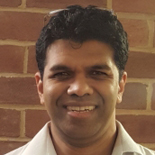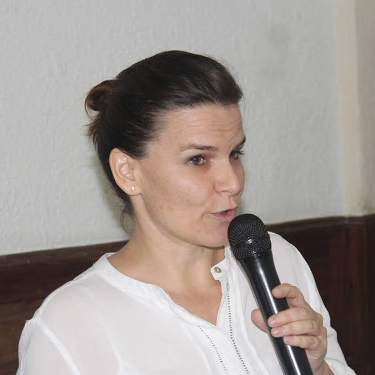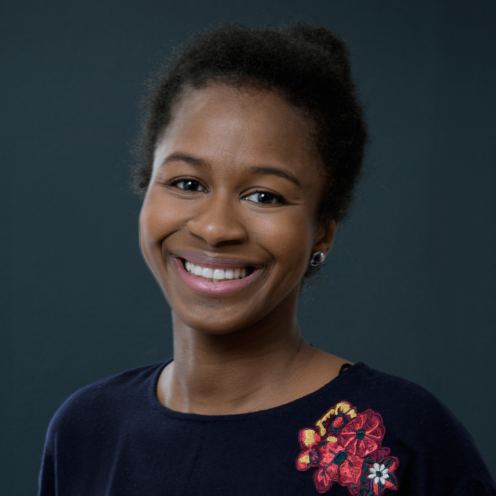Event Summary
Speakers
- Rashmin Gunasekera, World Bank
- Katarina Mouakkid Soltesova, UNDRR
- Assia Sidibe, ARC
- Modérateur: Cecil Nartey, Programme Coordinator of the Africa Disaster Risk Financing Programme (ADRiFi)
Description
Jeudi 21 Novembre, 11:00 – 12:30, Salle 3
Les modèles probabilistes (catastrophes) élargissent la portée des évaluations des risques traditionnellement réalisées sur la base de l’expérience historique. Il permet d’estimer les pertes prévues résultant d’événements naturels défavorables qui n’auraient pas encore pu se produire dans le passé. Les techniques de modélisation des risques (catastrophiques) ont été développées à l’origine par l’industrie internationale de l’assurance et de la réassurance pour évaluer le risque sur les portefeuilles d’actifs souscrits (par exemple les bâtiments) et sont de plus en plus utilisées par les gouvernements pour analyser l’exposition de leur pays aux événements naturels indésirables. En règle générale, les modèles de risque de catastrophe comprennent les éléments suivants :
Cette séance présentera le module sur l’exposition, le module sur les dangers et le module sur la vulnérabilité. La mise en commun des informations contenues dans les trois couches susmentionnées permet de calculer les pertes économiques globales prévues pour certains périls. Les principaux résultats des modèles probabilistes du risque de catastrophe sont divers et pourraient être utilisés dans différentes applications : mesures financières représentant les pertes moyennes annuelles, les pertes maximales probables ainsi que la distribution probabiliste spatialement désagrégée de l’impact sur les différentes composantes du modèle d’exposition concerné sur une période donnée – traditionnellement sur une année.
Speaker bios
 Rashmin Gunasekera is a Senior Disaster Risk Management Specialist at the World Bank in Washington DC, focusing on disaster risk assessment and risk financing within the Social, Urban, Rural and Resilience Global Practice, specifically in the Latin American and Caribbean region. He has over 15 years of work experience in disaster risk quantification extending to the public sector, re/insurance industry and academia. He has also presented and published innovative research and operations papers on Disaster Risk Management widely. Prior to joining the World Bank in 2012, Rashmin was Divisional Director of a global reinsurance intermediary and a coordinator of the Willis Research Network, the world’s largest collaboration between public science and the financial sector. He currently holds an honorary lectureship at University College London (UCL) and has a MPhil in GIS and Remote Sensing (Uni. of Cambridge, UK) and a PhD in earthquake seismology (Uni. Of Durham, UK).
Rashmin Gunasekera is a Senior Disaster Risk Management Specialist at the World Bank in Washington DC, focusing on disaster risk assessment and risk financing within the Social, Urban, Rural and Resilience Global Practice, specifically in the Latin American and Caribbean region. He has over 15 years of work experience in disaster risk quantification extending to the public sector, re/insurance industry and academia. He has also presented and published innovative research and operations papers on Disaster Risk Management widely. Prior to joining the World Bank in 2012, Rashmin was Divisional Director of a global reinsurance intermediary and a coordinator of the Willis Research Network, the world’s largest collaboration between public science and the financial sector. He currently holds an honorary lectureship at University College London (UCL) and has a MPhil in GIS and Remote Sensing (Uni. of Cambridge, UK) and a PhD in earthquake seismology (Uni. Of Durham, UK).
 Katarina Mouakkid Soltesova is the Risk Knowledge Programme Management Officer at the Africa Regional Office of the UN Office for Disaster Risk Reduction (UNDRR). UNDRR’s risk knowledge portfolio comprises activities related to the development and promotion of country-level risk profiles, currently in collaboration with the technical-scientific partner the CIMA Research Foundation. UNDRR promotes the use of risk information in prioritizing resource allocation and advocates for the mainstreaming of DRR in national budgeting cycles. UNDRR supports Member States in the development and maintenance of national disaster loss inventories using the DesInventar-Sendai methodology and advocates for the development of national and regional risk information systems, including those focused on preparedness and trans-boundary risk management. Katarina has an Engineering Doctorate in community-based urban risk management.
Katarina Mouakkid Soltesova is the Risk Knowledge Programme Management Officer at the Africa Regional Office of the UN Office for Disaster Risk Reduction (UNDRR). UNDRR’s risk knowledge portfolio comprises activities related to the development and promotion of country-level risk profiles, currently in collaboration with the technical-scientific partner the CIMA Research Foundation. UNDRR promotes the use of risk information in prioritizing resource allocation and advocates for the mainstreaming of DRR in national budgeting cycles. UNDRR supports Member States in the development and maintenance of national disaster loss inventories using the DesInventar-Sendai methodology and advocates for the development of national and regional risk information systems, including those focused on preparedness and trans-boundary risk management. Katarina has an Engineering Doctorate in community-based urban risk management.
 Assia Sidibe joined the ARC team in 2014 and currently serves as the Head of Government Services for West and Central Africa, in which she is responsible for managing the ARC operations in those regions, and the partnership with the African Development Bank Group. Prior to joining the ARC Agency, she worked at the French Development Agency in Johannesburg, on capacity building and municipal infrastructure financing. She has also worked for KPMG’s Audit and Advisory in Paris, where she was a consultant and an auditor in the insurance department. A native of Mali, Assia holds a BSc in International Business from the École supérieure du commerce extérieur of Paris-La Defense and a master’s degree in Finance and Strategy from Sciences Po Paris. Assia is a native French speaker and is fluent in English. Assia is an Aspen Institute New Voices fellow.
Assia Sidibe joined the ARC team in 2014 and currently serves as the Head of Government Services for West and Central Africa, in which she is responsible for managing the ARC operations in those regions, and the partnership with the African Development Bank Group. Prior to joining the ARC Agency, she worked at the French Development Agency in Johannesburg, on capacity building and municipal infrastructure financing. She has also worked for KPMG’s Audit and Advisory in Paris, where she was a consultant and an auditor in the insurance department. A native of Mali, Assia holds a BSc in International Business from the École supérieure du commerce extérieur of Paris-La Defense and a master’s degree in Finance and Strategy from Sciences Po Paris. Assia is a native French speaker and is fluent in English. Assia is an Aspen Institute New Voices fellow.
Cecil Nartey is the Programme Coordinator of the Africa Disaster Risk Financing Programme (ADRiFi) at the Africa Development Bank. He is leading the development and implementation of the Bank’s flagship programme in Disaster Risk Management, working with AfDB regional member countries (RMCs) to enhance the resilience and response to climate shocks in the respective countries. Key components of the programme are capacity building and risk transfer, including parametric insurance. He is also leading the piloting of activities in de-risking agricultural finance for smallholder farmers in four African countries. He has dual nationality of Ghana and Britain, and holds MSc and PhD in agricultural economics from the University of Reading in England. Prior to joining the Bank 12 years ago he had worked with OXFAM GB, UNIDO and CARE USA.
